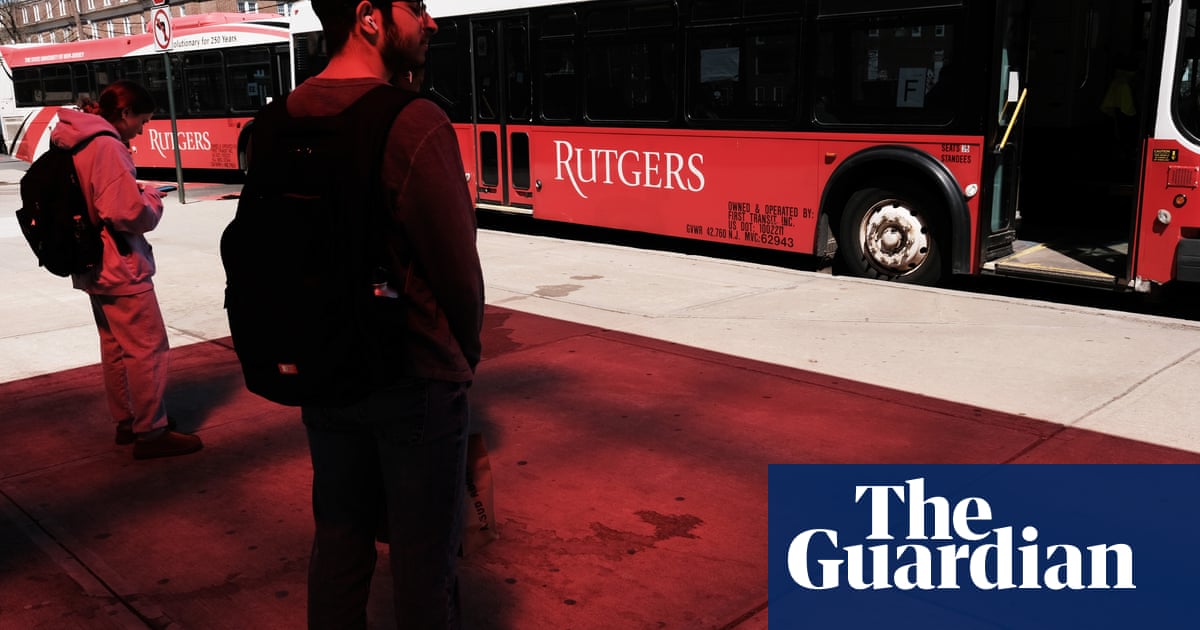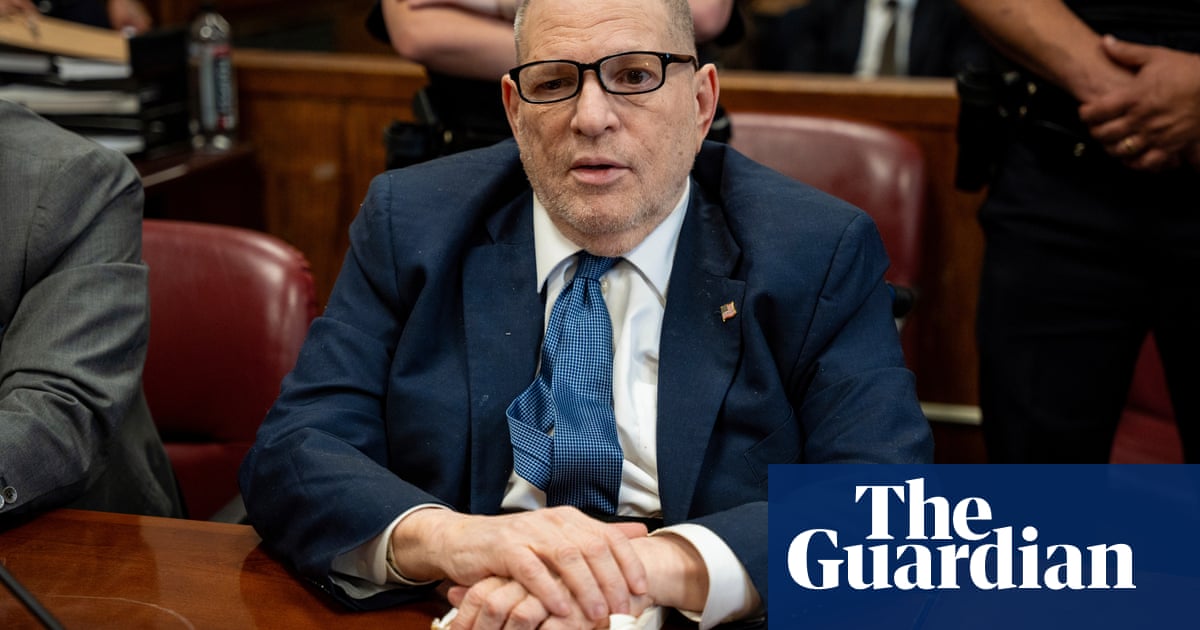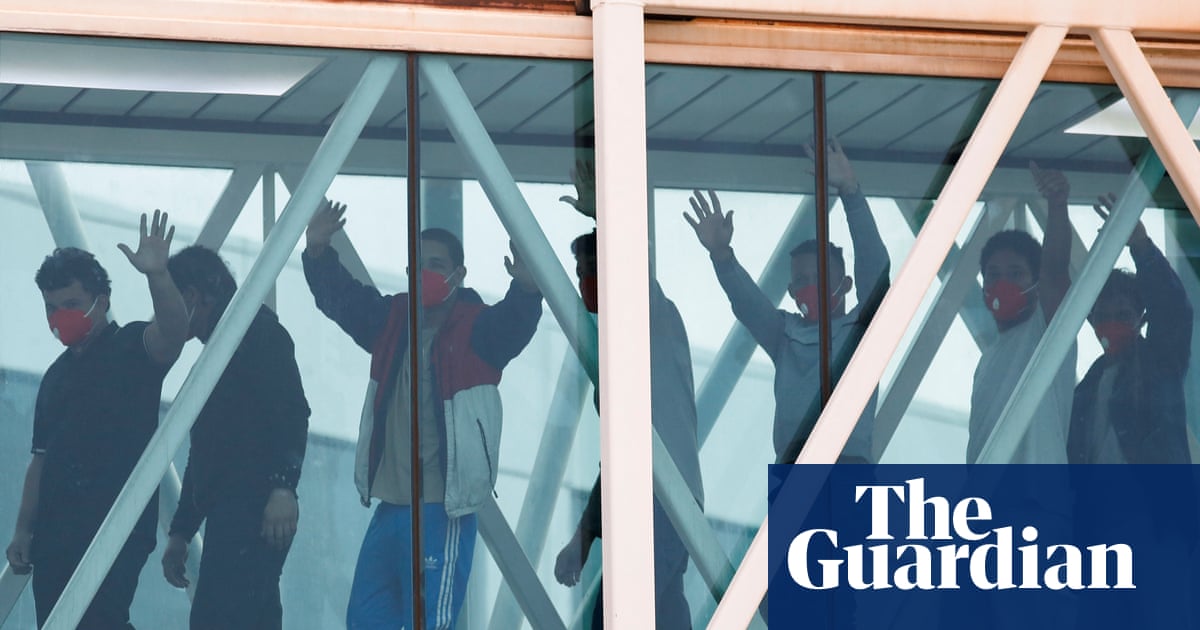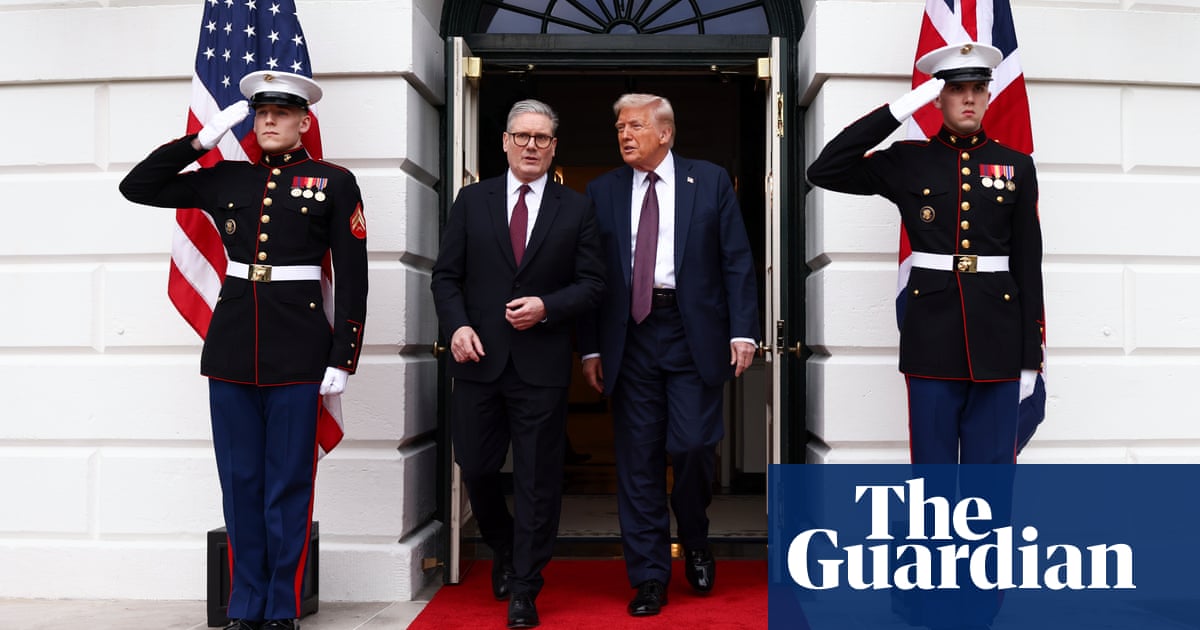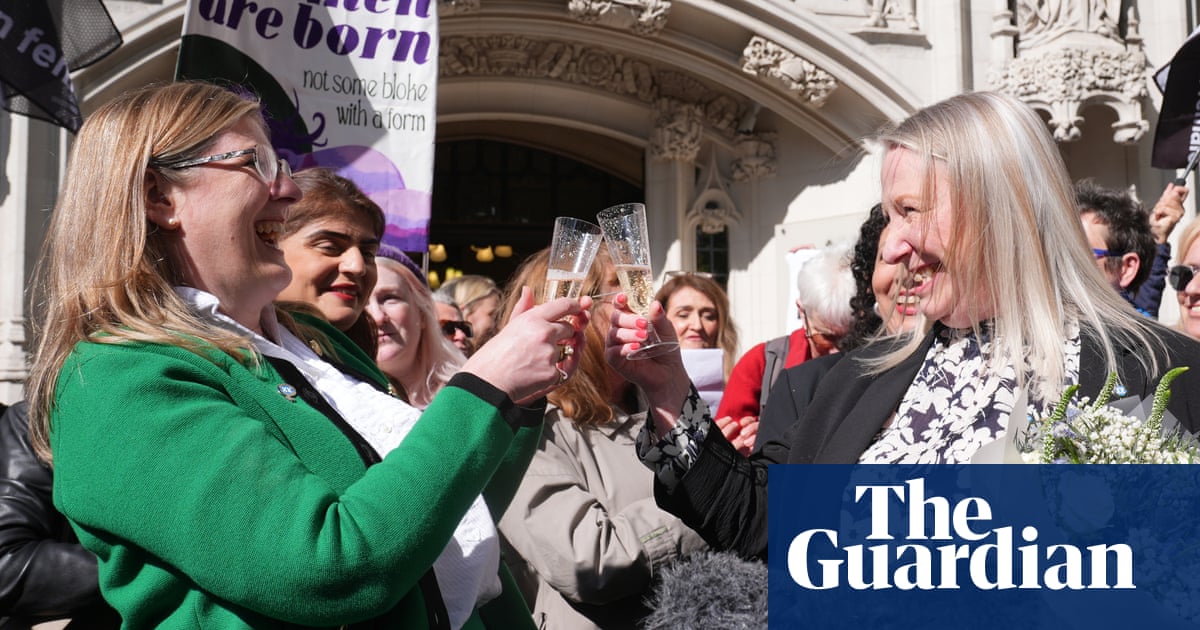Donald Trump may continue using a 1798 law to deport alleged gang members to Venezuela, the supreme court ruled on Monday, however it will apply certain limits. Any challenges to the wartime law, called the Alien Enemies Act, must take place in Texas, where the migrants were held, and not in Washington DC, the court said.
In a 5-4 ruling, the court granted the Trump administration’s request to lift a Washington DC-based judge’s order temporarily blocking the deportations.
However, the court did not immediately address whether the administration improperly utilized the act, writing in its order instead that such a determination must be made in Texas court: “The detainees are confined in Texas, so venue is improper in the District of Columbia.”
Despite siding with the administration, the court’s majority placed limits on how deportations may occur, emphasizing that judicial review is required.
Detainees “must receive notice after the date of this order that they are subject to removal under the Act. The notice must be afforded within a reasonable time and in such a manner as will allow them to actually seek habeas relief in the proper venue before such removal occurs,” the majority wrote.
Trump celebrated the ruling on social media on Monday, writing on Truth Social: “The Supreme Court has upheld the Rule of Law in our Nation by allowing a President, whoever that may be, to be able to secure our Borders, and protect our families and our Country, itself. A GREAT DAY FOR JUSTICE IN AMERICA.”
The court has a 6-3 conservative majority. Conservative justice Amy Coney Barrett and the court’s three liberal justices dissented.
Trump invoked the Alien Enemies Act on 15 March to swiftly deport the alleged members of the Tren de Aragua gang, attempting to speed up removals with a law best known for its use to intern Japanese, Italian and German immigrants during the second world war.
In a legal challenge handled by the American Civil Liberties Union, a group of Venezuelan men in the custody of US immigration authorities on the same day sued on behalf of themselves and others similarly situated, seeking to block the deportations. They argued, among other things, that Trump’s order exceeded his powers because the Alien Enemies Act authorizes removals only when war has been declared or the United States has been invaded.
The Alien Enemies Act authorizes the president to deport, detain or place restrictions on individuals whose primary allegiance is to a foreign power and who might pose a national security risk in wartime.
In a concurrence, Justice Brett Kavanaugh wrote that the “only question” the court had considered is where judicial review of the Act should occur: “As the court stresses, the court’s disagreement with the dissenters is not over whether the detainees receive judicial review of their transfers — all nine members of the court agree that judicial review is available.”
US judge James Boasberg, an appointee of the Democratic president Barack Obama based in Washington DC, had temporarily blocked the deportations. But Trump’s administration allowed two planes already in the air to continue to El Salvador where American officials handed 238 Venezuelan men over to Salvadoran authorities to be placed in the Central American country’s “Terrorism Confinement Center.”
after newsletter promotion
The judge also has scrutinized whether the Trump administration violated his order by failing to return the deportation flights after his order was issued. Justice department lawyers said the flights had left US airspace by the time Boasberg issued a written order and thus were not required to return. They dismissed the weight of Boasberg’s spoken order during a hearing two hours earlier calling for any planes carrying deportees to be turned around.
Trump’s administration has argued that Boasberg’s temporary ban encroached on presidential authority to make national security decisions.
On 18 March, Trump called for Boasberg’s impeachment by Congress – a process that could remove him from the bench – drawing a rebuke from the US chief justice John Roberts. Trump on social media called Boasberg, who was confirmed by the US Senate in 2011 in a bipartisan 96-0 vote, a “Radical Left Lunatic” and a “troublemaker and agitator”.
The DC circuit upheld Boasberg’s order after holding a contentious hearing that involved heated language. Judge Patricia Millett told a justice department lawyer, Drew Ensign, that “Nazis got better treatment under the Alien Enemies Act than has happened here.” Ensign responded: “We certainly dispute the Nazi analogy.”
Family members of many of the deported Venezuelan migrants deny the alleged gang ties. Lawyers for one of the deportees, a Venezuelan professional soccer player and youth coach, said US officials had wrongly labeled him a gang member based on a tattoo of a crown meant to honor his favorite team, Real Madrid.

 1 week ago
20
1 week ago
20




